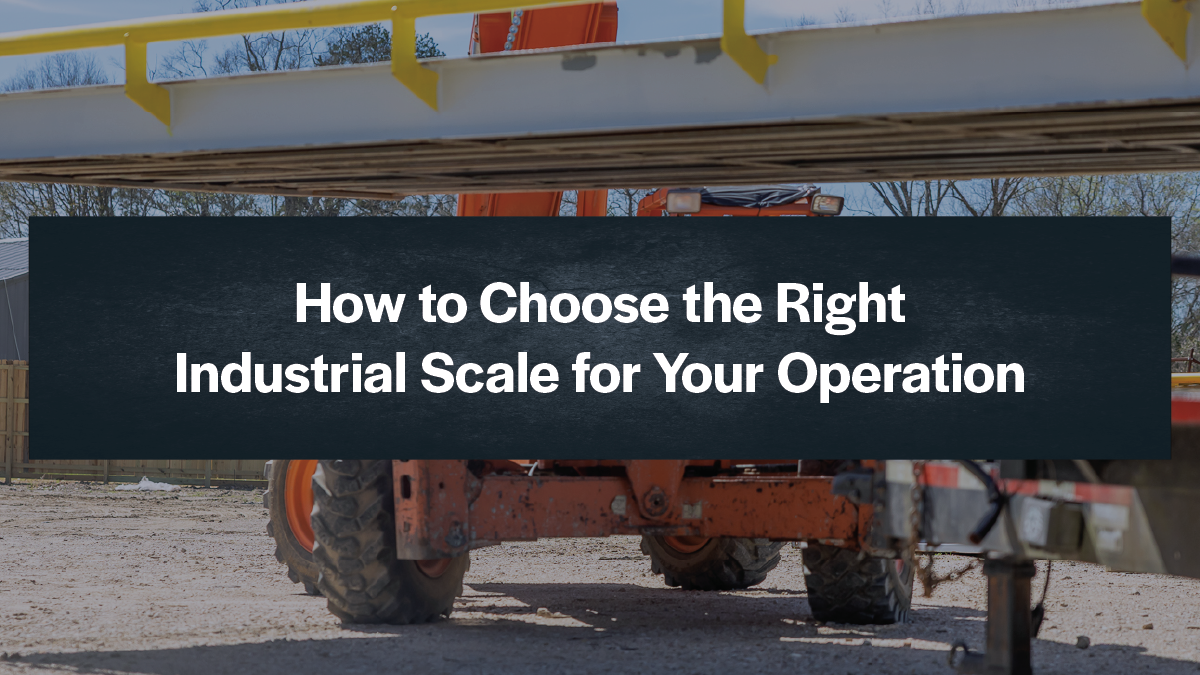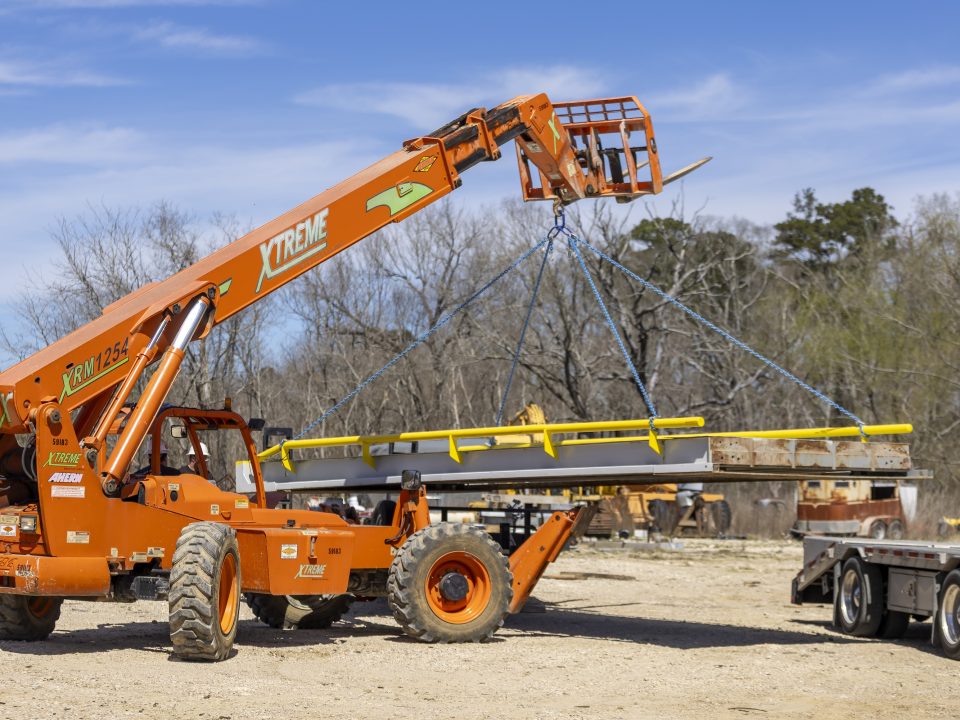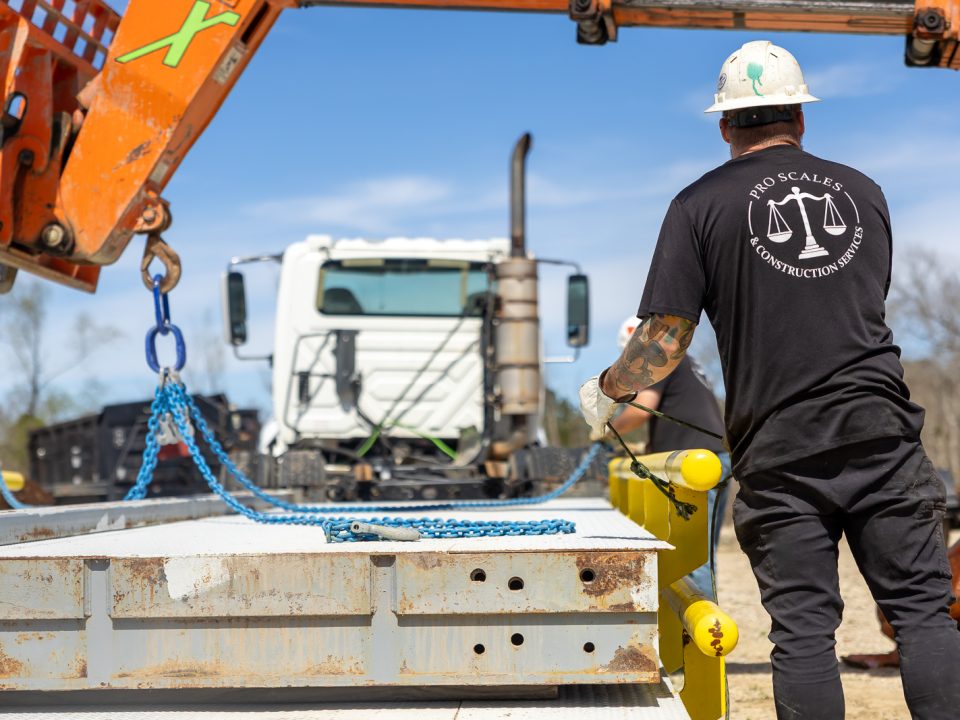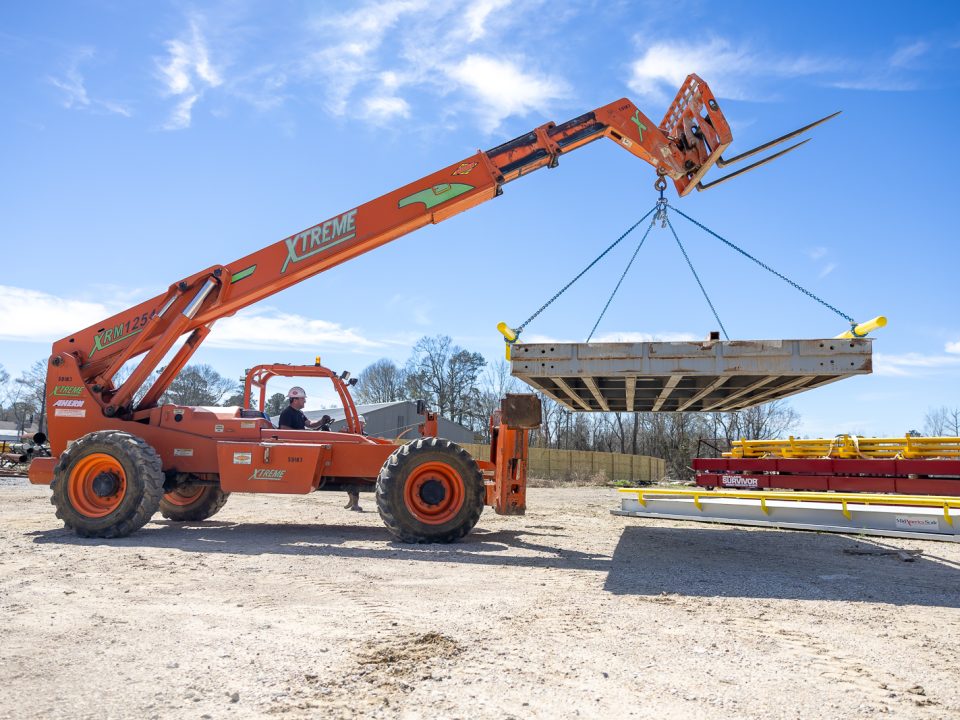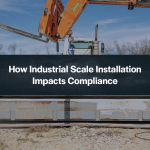
How Industrial Scale Installation Impacts Compliance
August 21, 2025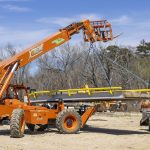
How Industrial Scale Installation Impacts Facility Safety
October 21, 2025For industrial operations, few tools work harder than your scale. Whether you’re verifying truckloads of materials, tracking production output or keeping your inventory in check, your scale is part of how your business keeps moving. That’s why choosing the right industrial scale matters.
We’ve worked with businesses across industries that need scalable systems built to last. The right choice can support your workflow, fit your site and grow with your operation. The wrong choice can slow you down or cost you more over time. If you’re evaluating a new scale or upgrading your current setup, here’s a full breakdown of what to consider.
Know What You’re Weighing and Why
It may sound obvious, but the first step in choosing a scale is knowing exactly what you plan to weigh.
Start by asking:
- What are we weighing? Trucks, pallets, loose material, equipment?
- How often will we weigh it?
- What level of accuracy do we need?
- Does the scale need to connect to a larger system for data or reporting?
The answers to these questions help determine not only the scale type but also the materials, load cell strength and display options. A facility that runs ten trucks a day doesn’t need the same setup as a batch plant running continuous shifts. If you’re in a regulated industry, there may also be requirements for calibration, certification or data logging.
Choose the Right Scale Type for the Job
There are a lot of scale types out there, but each one has a purpose. Trying to make one scale do the job of another usually leads to slowdowns, wear and tear or costly service calls.
Here are the most common scale types we install and maintain for clients across commercial and industrial settings:
Truck Scales
Truck scales are built to weigh entire vehicles. These are most often found in aggregate yards, landfills, construction sites, shipping terminals and agriculture operations. You’ll typically choose between an above-ground or pit-mounted system depending on available space, traffic flow and site conditions.
Truck scales must be engineered to handle heavy loads, repetitive use and outdoor conditions. In many cases, they’re also tied into systems that record weight tickets or update inventory systems automatically.
Floor Scales
Floor scales are large, ground-level platforms used to weigh pallets, bins or equipment. They’re common in warehouses, distribution centers and light manufacturing. These scales are durable and can take heavy use from forklifts and pallet jacks.
Floor scales are ideal for operations where material comes in or out frequently, especially if you need a simple interface and reliable performance without the complexity of larger systems.
Bench Scales
Bench scales are smaller and more compact, often used on worktables or countertops. They’re built for weighing lighter products with higher precision. Food processors, laboratories and packaging lines use bench scales to measure smaller quantities or track materials during production.
Some bench scales also come with digital displays, programmable options and connectivity features for inventory management.
Hopper and Tank Scales
These scales are mounted beneath hoppers, tanks or silos. They weigh the contents as they are added or removed, making them ideal for batching, ingredient mixing or continuous flow operations. Hopper and tank scales are popular in agriculture, chemical processing, food production and similar applications.
In these environments, the scale system must be sensitive enough to track material flow but also rugged enough to support heavy loads and environmental exposure.
Rail and Axle Scales
Rail scales are designed to weigh loaded railcars directly on the tracks. Axle scales weigh each axle of a truck separately and then calculate the full weight. Both systems are built for very specific applications and require close attention to alignment, data integration and safety.
While not every business needs these types, the ones that do often rely on them daily for compliance and logistics.
Consider Your Site Conditions
Choosing a scale isn’t just about what you weigh. It’s also about where and how the scale will be used. The environment around your scale can affect its accuracy, lifespan and performance.
Start with the basics:
- Will your scale be indoors or outdoors?
- Will your scale be exposed to water, dust, dirt or chemicals?
- Will it operate in freezing or high-temperature conditions?
- Is the site prone to flooding or heavy vibration?
Outdoor scales need extra protection. Load cells should be sealed against moisture. Steel frames may need rust-resistant coatings or added drainage. If you’re working in a washdown area, the scale materials should be non-corrosive and easy to clean.
Concrete foundations should be poured to the right spec, and access paths should support the traffic the scale will carry. Overlooking these site conditions can lead to early failures or expensive maintenance later on.
Determine the Right Capacity and Size
Scales aren’t just about weight capacity. Platform size matters too. A common mistake is choosing a scale that’s too small or barely fits your current operation. That might save a little on the front end, but it can create safety issues or limit your growth. Your scale should have the capacity to handle your heaviest expected load with room to spare.
If a scale is constantly overloaded, misused or forced to accommodate oversized materials, it won’t last long. Right-sizing your scale from the beginning gives you smoother operations, fewer delays and lower risk of damage.
Permanent or Portable?
Depending on your business, you may want a permanent scale installation or something that’s mobile and flexible.
Permanent Scales
These are installed into foundations or structural mounts. They’re designed for long-term use in fixed locations. Permanent installations are more stable, accurate and durable, making them a better choice for operations that weigh high volumes of material regularly. Most truck scales, floor scales and hopper systems fall into this category.
Portable Scales
Portable systems are great for temporary job sites, seasonal operations or mobile businesses. They’re often easier to install and relocate. Many of them still offer high accuracy and durability but without the need for concrete or long-term infrastructure. If you’re in construction, agriculture or run projects that shift from one location to another, portable options might be a better fit.
Think About System Integration
Your scale might start with weight, but that’s rarely where it ends. Many industrial operations require data collection, reporting or system integration. Digital displays, wireless indicators, software compatibility and remote monitoring can all improve how your scale fits into your business. A well-integrated system reduces manual entry, improves traceability and speeds up your entire process.
Don’t Forget About Maintenance
No scale lasts forever, but choosing the right system and support team helps keep yours running reliably for years. Regular calibration and preventative maintenance are key to consistent performance.
A good maintenance plan saves time and money. It also ensures you stay compliant with any industry or legal standards tied to weighing accuracy. We offer full support on everything we install, so our clients know exactly who to call when they need help.
Let’s Build a Solution That Works for You
Whether you’re starting from scratch or replacing an old system, we’re here to make the process easier. We’ll help you avoid common pitfalls, make sure your site is ready and install a scale system that supports your operation for the long haul. From truck scales to portable setups, we stand behind our work and keep your system running the way it should.
If you’re ready to weigh your options, give us a call. We’d be glad to help.


